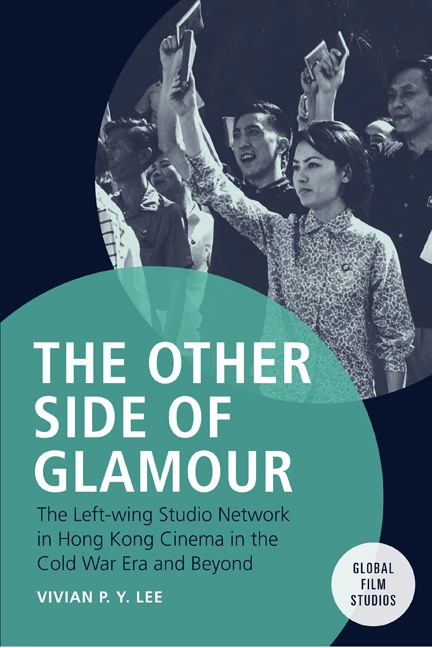 The Other Side of Glamour
The Other Side of Glamour Published online by Cambridge University Press: 17 September 2020
Ranked among the “big four” Cantonese film studios in Hong Kong during the 1950s and the first half of the 1960s, the studio style of Sun Luen and Union can be defined by a creative adaptation of the aesthetic taste and preferences of the south-bound intellectuals from Mainland China, an émigré community who had maintained a strong emotional connection to their home country. Unlike the elitist ethos of the south-bound community that saw the colony as a cultural desert, the filmmakers were guided by their vision of a healthy Cantonese film culture as an agent of more far-reaching social change, which explains their sense of urgency in using cinema as a collective wake-up call against a materialistic (capitalist) and decadent society that colonial Hong Kong presumably had become. Committed to elevating the Cantonese cinema to a serious form of art and agent of social transformation, leading figures of the left-wing film community took an active role in fostering a progressive filmmaking culture. Their work included the Third Cantonese Cinema Clean-up Movement and the founding of the South China Film Industry Workers’ Union in 1949. Indeed, Cantonese cinema at the time was plagued by an overproduction of formulaic genre and opera films, many of which were shot on hasty schedules to maximize profitability. Union and Sun Luen became the labels of a number of Cantonese film classics that contributed to the distinctive “period look” of the black-and-white era. Without losing sight of their best-known classics, this chapter takes a closer look at the studios’ genre films to shed light on the left-wing's eff ort to claim a space in the commercial mainstream. It is argued that alongside the more serious drama films, the lighter entertainment films also contributed to the “studio style” of the left-wing cinema. As we shall see, genre films were also an important constituent of the “popular left-wing” in Hong Kong cinema in the 1950s and 1960s.
A recurrent question pertaining to studio style is the way in which it interacts with the film culture of its time that gives rise to a set of stylistic signatures, hence a studio's public image or identity. The social dramas aside, Union and Sun Luen produced a wide range of popular genre films, from comedies and crime thrillers to traditional opera films, to capture a wider spectrum of audience.
To save this book to your Kindle, first ensure no-reply@cambridge.org is added to your Approved Personal Document E-mail List under your Personal Document Settings on the Manage Your Content and Devices page of your Amazon account. Then enter the ‘name’ part of your Kindle email address below. Find out more about saving to your Kindle.
Note you can select to save to either the @free.kindle.com or @kindle.com variations. ‘@free.kindle.com’ emails are free but can only be saved to your device when it is connected to wi-fi. ‘@kindle.com’ emails can be delivered even when you are not connected to wi-fi, but note that service fees apply.
Find out more about the Kindle Personal Document Service.
To save content items to your account, please confirm that you agree to abide by our usage policies. If this is the first time you use this feature, you will be asked to authorise Cambridge Core to connect with your account. Find out more about saving content to Dropbox.
To save content items to your account, please confirm that you agree to abide by our usage policies. If this is the first time you use this feature, you will be asked to authorise Cambridge Core to connect with your account. Find out more about saving content to Google Drive.